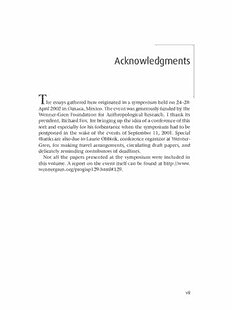
Hearing Cultures: Essays on Sound, Listening, and Modernity PDF
244 Pages·2004·3.861 MB·English
Most books are stored in the elastic cloud where traffic is expensive. For this reason, we have a limit on daily download.
Preview Hearing Cultures: Essays on Sound, Listening, and Modernity
Description:
Vision is typically treated as the defining sense of the modern era and a powerful vehicle for colonial and postcolonial domination. This is in marked contrast to the almost total absence of accounts of hearing in larger cultural processes. Hearing Cultures is a timely examination of the elusive, often evocative, and sometimes cacophonous auditory sense - from the intersection of sound and modernity, through to the relationship between audio-technological advances and issues of personal and urban space. As cultures and communities grapple with the massive changes wrought by modernization and globalization, Hearing Cultures presents an important new approach to understanding our world. It answers such intriguing questions as: Did people in Shakespeare’s time hear differently from us? In what way does technology affect our ears? Why do people in Egypt increasingly listen to taped religious sermons? Why did Enlightenment doctors believe that music was an essential cure? What happens acoustically in cross-cultural first encounters? Why do Runa Indians in the Amazon basin now consider onomatopoetic speech child’s talk? The ear, as much as the eye, nose, mouth and hand, offers a way into experience. All five senses are instruments that record, interpret and engage with the world. This book shows how sound offers a refreshing new lens through which to examine culture and complex social issues.
See more
The list of books you might like
Most books are stored in the elastic cloud where traffic is expensive. For this reason, we have a limit on daily download.
